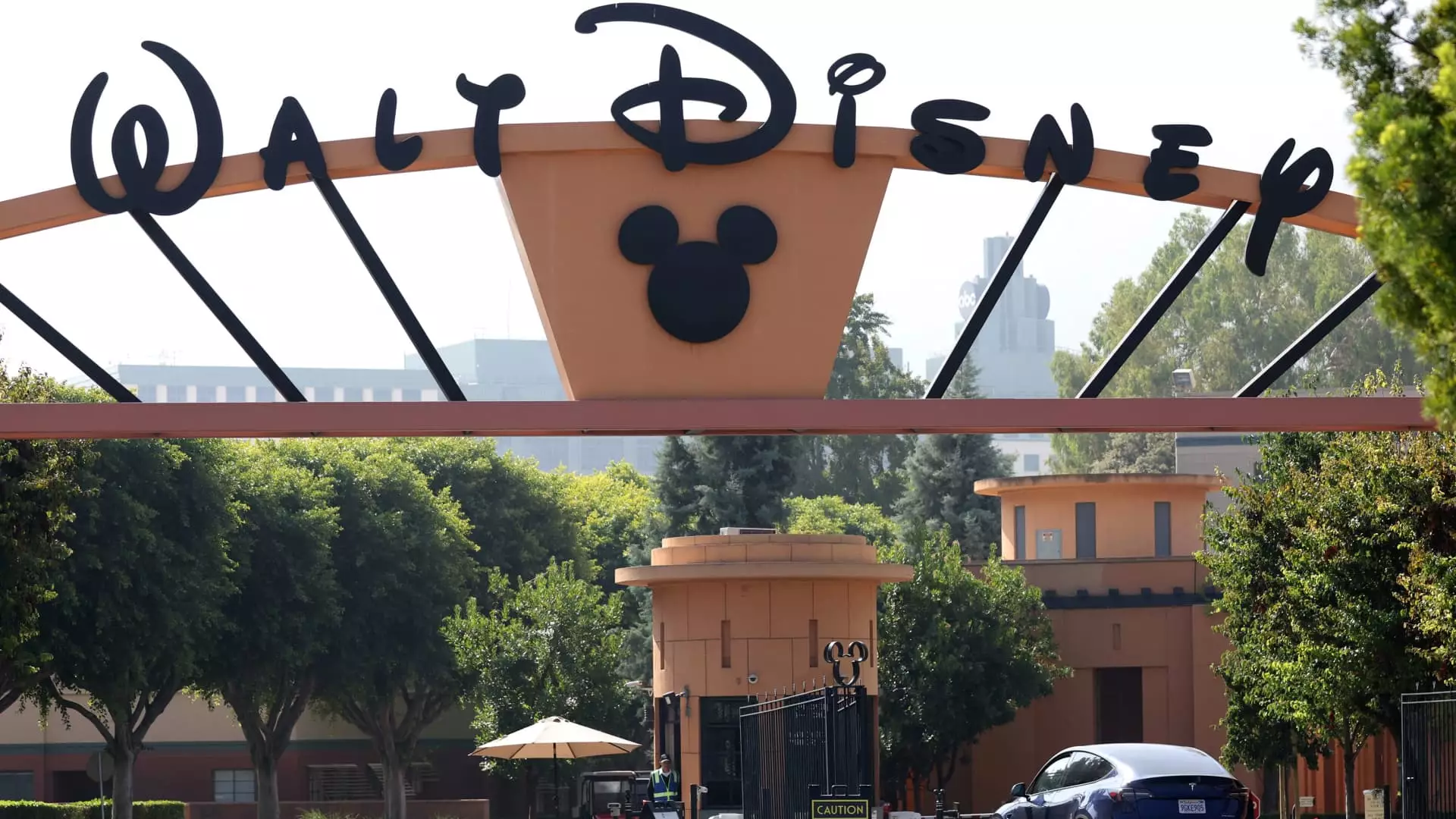The Federal Communications Commission (FCC) has initiated significant scrutiny into the diversity, equity, and inclusion (DEI) strategies employed by the Walt Disney Company and its ABC unit. This development is not just another regulatory measure; it’s a probing look into how large corporations like Disney grapple with societal expectations regarding equity and representation in their workplaces. The FCC’s inquiry raises important questions about whether the initiatives aimed at creating diverse work environments might be inadvertently fostering discriminatory practices under the guise of inclusion.
The Uneven Scale of DEI Efforts
Disney has long been heralded as a pioneer in family entertainment, blending imaginative storytelling with bold corporate strategies that often break revenue records. However, the recent FCC investigation highlights a disconnection between Disney’s celebrated legacy and its current approach to workforce diversity. The letter from FCC Chairman Brendan Carr suggests a possibility that Disney’s past successes might have fallen prey to a “one-size-fits-all” mindset regarding DEI initiatives. In an era that demands authenticity and genuine representation, Disney’s once-magic formula faces the risk of tarnishing its revered brand.
Pendulum of Change: Political Winds Affecting Corporate Policies
The timing of this inquiry does not appear coincidental. Following former President Donald Trump’s 2023 executive order aimed at dismantling DEI policies across various organizations, the FCC’s probing comes as a direct response to a broader political climate that questions the efficacy of such initiatives. While DEI practices have good intentions at their core, the investigation sheds light on how they might be perceived as contentious in the current political arena. This leaves one to ponder: Are corporations like Disney caught in a whirlwind of political recalibration, or are they genuinely failing to meet the essential standards of equitable employment?
The Corporate Culture Conundrum
As highlighted in Carr’s correspondence, Disney must confront the consolidation of its core values with the imperatives of modern societal constructs. Dissecting Carr’s assertion that “something changed” since Disney’s golden years begs for deeper exploration. Does Disney’s DEI approach represent a sincere shift toward inclusivity, or does it reflect a superficial adherence to a trending narrative? This question looms large, especially when considering that many companies have suffered backlash due to poorly implemented diversity policies that fail to resonate with both employees and consumers alike.
Room for Accountability
The FCC’s investigation is not merely regulatory fluff; it could serve as a catalyst for a transformative dialogue on how DEI practices are instituted within large corporations. Disney’s response—illustrated by its engagement with the FCC—will be a litmus test for its commitment to genuine diversity versus a performative approach aimed at appeasing regulatory bodies and public scrutiny. The findings from this inquiry could very well reshape corporate America’s approach to not just DEI policy, but to the overarching concept of equity in a divided nation.
In this moment, all eyes are on Disney, as it navigates this labyrinth of accountability. The stakes are high, and the ramifications of this investigation extend beyond corporate walls, potentially influencing the future of workplace inclusion across all industries. The spotlight is on Disney, demanding transparency and thoughtful engagement with the communities it aims to represent.

Leave a Reply